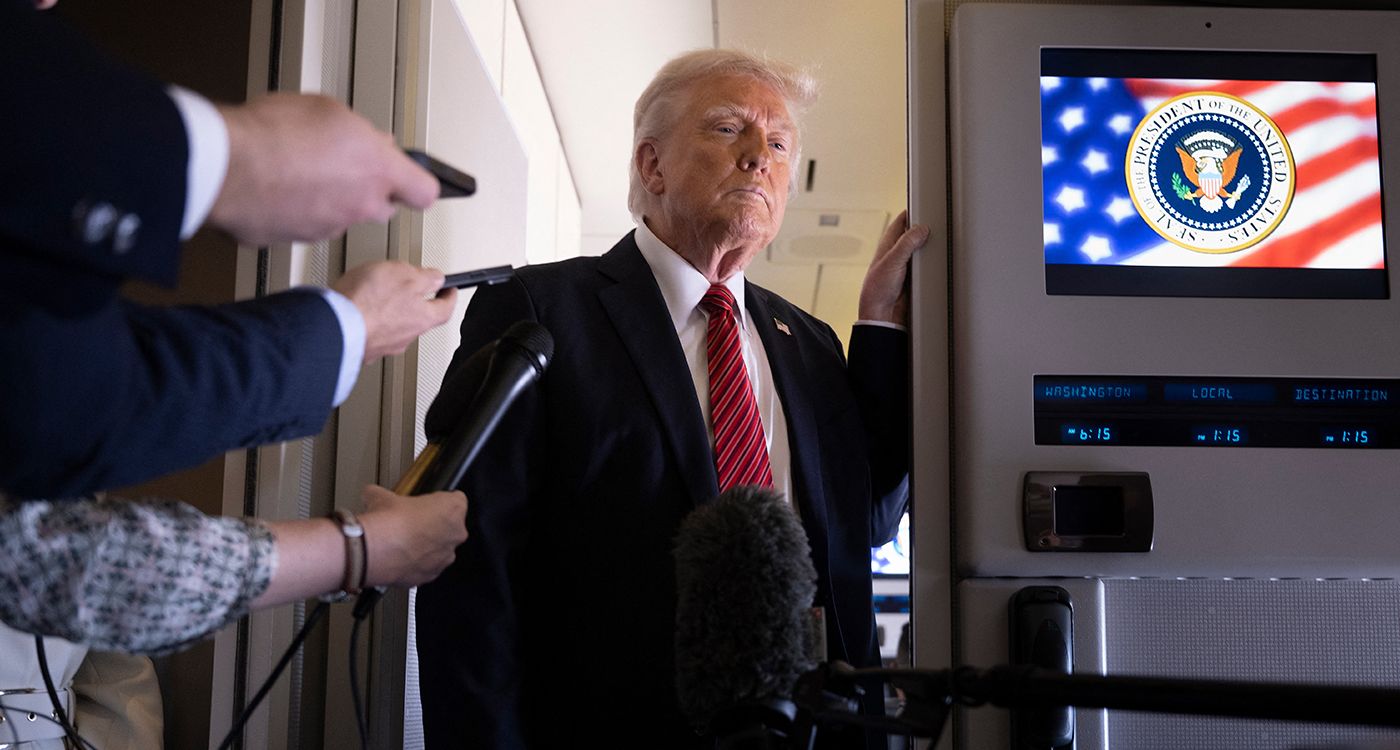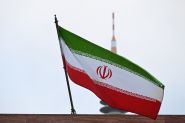- Home
- Middle East
- Trump’s Middle East Visit: AI Dreams, Petrodollars and the Rebirth of Broken States

©Brendan Smialowski / AFP
Trump’s first major foreign trip in his second term didn’t start in Jerusalem, Cairo or Baghdad, it began in Riyadh. That alone says a lot. This wasn’t about Abraham Accords 2.0 or sermonizing about “shared values.” This was pure transactional diplomacy, wrapped in the glossy skin of petrodollars and lined with AI circuits.
The visuals were hard to miss: Elon Musk chatting with Mohammed bin Salman over mint tea, OpenAI’s Sam Altman walking through data center blueprints in Neom and BlackRock’s Larry Fink closing deals in a gilded Riyadh ballroom. This wasn’t a political summit, it was a Silicon Souq, and Trump was its showman.
Saudi Arabia pledged a staggering $600 billion to US investments, while the UAE upped the ante with a jaw-dropping $1.4 trillion over the next decade. Some of this is military—like the $142 billion arms deal—but much more is digital: AI infrastructure, data factories, robotics in healthcare and education. In short: the Gulf wants to stop being the gas station of the world and start being its motherboard.
What’s driving this sudden infatuation with artificial intelligence? Survival. With oil’s days numbered, Gulf monarchies are racing to reinvent themselves. AI is the new rentier dream: data instead of crude, chips instead of barrels, algorithms instead of pipelines.
Trump, ever the businessman, isn’t just indulging this dream, he’s cashing in. By lifting sanctions on Syria and opening the door to American investment, he’s setting up a Reagan-esque narrative: rebuild the rubble, flood the market, claim the credit. “We’re giving Syria a chance at greatness,” he declared. Translation: let’s turn Damascus into Dubai before the Chinese arrive.
Now, zoom out and follow the ripple effect.
Syria gets an unexpected reprieve. Trump’s promise to lift sanctions isn’t just symbolic, it signals a pivot. The post-Assad landscape, likely backed by Gulf reconstruction money and American tech, could see a new elite emerge in Damascus: a government more interested in broadband than Ba’athism. But the risks are real: an influx of capital in a fractured state without institutional guardrails could lead to oligarchy 2.0.
Meanwhile, Lebanon is the uninvited guest at the banquet, but may still get a plate. Stability in Syria could mean safer borders, a return of some Syrian refugees and Gulf investors cautiously eyeing Beirut’s battered banks and tech entrepreneurs. But let’s not kid ourselves, no one’s lining up to bail out Lebanon unless it stops being a mafia-run casino with no electricity.
There’s a new Trump Doctrine in town, and it’s refreshingly simple: Money talks, and ideology takes a hike. Human rights? Not at this summit. Democracy? It’s not on the table, unless it’s blockchain-based. Trump traded “moral clarity” for economic clarity, and in this region, that’s a language everyone understands.
But here’s the kicker: this might actually work. By treating the Middle East as a boardroom instead of a battlefield, Trump found a way to engage without invading, to influence without occupying. The CEOs aren’t just window dressing, they’re the new generals. The wars of the next decade won’t be over borders, but over bandwidth and quantum supremacy.
If this tour was the trailer, the movie is yet to come. Will AI deliver real prosperity to the region, or just empower the same old autocracies with shinier tools? Will Syria become a Dubai-style comeback story or fall into Chinese dependency if the American money doesn’t move fast enough? And can Lebanon claw its way out of bankruptcy with regional stability at its doorstep, or will it keep missing the bus because of its own self-inflicted paralysis?
We’re at the dawn of a new kind of Middle East game—less chessboard, more codebase. And Donald Trump just rebooted the system.
Welcome to the Middle East 3.0.
Read more




Comments